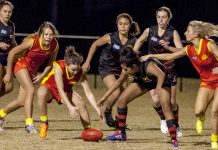Solveig Straume
Molde University College, Norway

Families, Sport, Leisure and Social Justice: From Protest to Progress
207 pages, hardcover
Abingdon, Oxon: Routledge 2021 (Routledge Critical Perspectives on Equality and Social Justice in Sport and Leisure)
ISBN 978-0-367-33982-1
After two years of living in a world affected by a global pandemic, the book Families, Sport, Leisure and Social Justiceedited by Dawn E. Trussel and Ruth Jeanes is a timely scholarly contribution. The book contains of a collection of papers that examine how families, sport, and leisure connect to broader social issues in society, utilizing social justice perspectives.
The book is divided into four parts with altogether 15 relatively short (10 pages) chapters written by international sport and leisure scholars from different disciplines. The chapters fit well in their designated parts, while they at the same time are stand-alone contributions. What the chapters have in common is their focus on (different forms of) families as well as a social justice perspective. They are also sketching out a way forward which makes each contribution “hopeful” in its approach.
The chapters differ in their theoretical approach towards social justice as well as whether they focus on sport and/or leisure. According to the editors, this is the intentional strength of the collection: “it showcases different theoretical and pragmatic principles of social justice and is one step toward greater theoretical sophistication in family-, sport- and leisure-related inquiry” (p. 5). The editors emphasise in the introductory chapter that the intention of the collection is to convey “a bricolage of family-centred research” where they (the editors) aim to be “quilt makers” (p. 5).
Part 1, “Theoretical and disciplinary perspectives”, contains three chapters that sets the stage for the chapters to come. Important critical perspectives are brought forward questioning the conceptualization of “family” as well as the relationship between sport and the family. For instance, in a critique of family leisure literature, Shannon (chapter 2) draws attention to how family identities outside of the heteronormative construction have been marginalized and silenced. Similarly, the editors together with Spaaij calls for inclusive research on marginalized families and family structures (chapter 3).
Besides the chapters about Colombia (written by a Western scholar) and the Middle East, the contributions are, as far as I can tell, from the UK, North America and New Zealand.
Part 2 is entitled “Gender justice and everyday activism” and consist of four chapters. All the chapters are about females and take us from women typically taking the role of project managers in the family (chapter 4 by McKeown), via sibling relationships in English girls’ and women’s football (chapter 5 by Pielichaty), to Colombian girls’ participation in sport and leisure (chapter 6 by Oxford) and family structures in the Middle East by Mohamed (chapter 7). Through this part, the complexities of gender equity in sport are challenged, and I think that the collection of chapters very well illustrate a diversity of cultural contexts and understandings.
Part 3, “Intergenerational considerations and diverse family forms”, is the longest part and consist of seven chapters that challenge and add to the understanding of what “family” is. The first chapters in this part calls attention to generativity as the evolving grandparent role is under scrutiny by Hebblethwaite (chapter 8), Fletcher (chapter 9) discusses the role of parental influences in children’s uptake in sport and Schänzel (chapter 10) writes about family tourism and the exclusion of socially and economically disadvantaged families in tourism. Further, in chapter 11 Quarmby and Sandford provide an interesting perspective on the sport and physical activity practices of vulnerable young people with care-experience (more often referred to as children in foster care in the Nordic countries. Oswald and Giunta (chapter 12) call attention to family and leisure in an aging LGBTQ population and advocates an inclusive scholarship in the future. In chapter 13, Oncescu highlights the importance of facilitating for the inclusion of low-income families in sport and leisure, whereas Sharaievska (chaper 14) calls attention to unequal distribution of the World Wide Web and how this impacts the opportunities of different families and family constellations. In a home office/home schooling perspective the latter contribution is particularly timely.
Part 4 is entitled “Moving forward” and the editors are wrapping up the collection. Here, they provide the particular relevancy of the book considering COVID-19 and the Black Lives Matter movement. They also point towards future research within the field and “offer a politics of hope, and what contributions ongoing family leisure and sport research can make to improve societies and family lives” (p. 14).

I think the books main contribution is to show the diversity in research and perspectives on family and social justice in relation to sport and leisure. I think it is important to unpack family issues in relation to social justice and I think the book is strong not just in its critique but in the way the reader is invited to look forward.
The chapters are an interesting read, I enjoyed most of them and could relate to many of them (obviously the extended concept for “family” concerns all of us, and thus I think any reader would relate). Personally, I found some chapters less interesting, but that illustrates the wide span of interdisciplinary topics that are covered. Therefore, I think the editors succeed in conveying the bricolage that they set out to do initially.
However, although I understand the argument of the editors and see the idea of the bricolage, as a reader this was one of the things that I found most confusing. As I read the different chapters I wondered sometimes how they related to each other (obviously social justice, but besides that?) and why one chapter was chosen instead of another.
Another objection concerns the weight of the Global North perspectives in the collection of chapters. Besides the chapters about Colombia (written by a Western scholar) and the Middle East, the contributions are, as far as I can tell, from the UK, North America and New Zealand. In the foreword we’re told that there are challenges of incorporating indigenous voices and the Black voice in family research, which again calls for more research from these perspectives specifically (p. xiii). The chapters in the book take a critical stance, and there might well be a lack of more diverse perspectives and research on families, sport, and leisure, but I still find the contributions and perspectives so much from a Western point of view that it bothers me while reading. From a Nordic perspective and for the reader of idrottsforum.org, I would think that the chapters are relatable and interesting. However, even from a Nordic social-democratic sports context we see great differences from the contexts that are presented in this book.
All in all, I enjoyed reading this bricolage of academic work. In times of a global pandemic, the current Russian war on Ukraine and other big and small social (justice) disruptions, the role of the “family”, in whatever shape it takes, is as important and crucial as ever and therefore needs to be emphasised. Families, Sport, Leisure and Social Justice: From Protest to Progress√ takes us a good step on the way.
Copyright © Solveig Straume 2022
Table of ContentPart I: Theoretical and Disciplinary Perspectives
Part II: Gender Justice and Everyday Activism
Part III: Intergenerational Considerations and Diverse Family Forms
Part IV: Moving Forward
|








